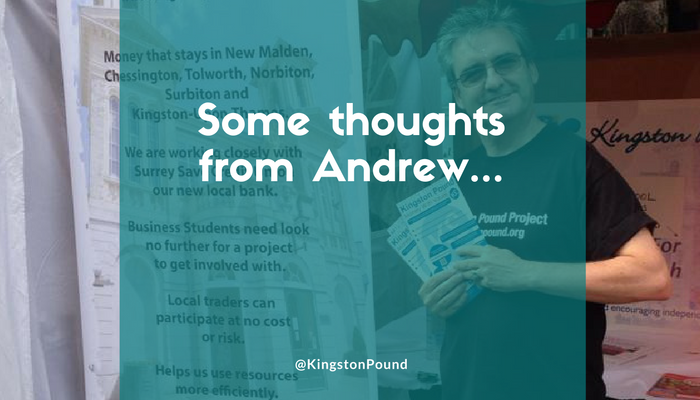Economists typically compare the relative performance of countries by using Gross Domestics Product, or GDP. This is the monetary value of all the finished goods and services produced within a country’s borders in a specific time period.
There seems to be an obsession with continuing growth of GDP because its the only indication of the economic health of a nation. Zero growth of GDP or a fall in it seems to trigger all sorts of panic such as a sharp fall in the stock market but, economic growth cannot continue for ever. At some point it becomes unsustainable.
What are we left with? Well we are a very smart species and many of us are cottoning on to the fact that some economic activity is not measurable in the traditional sense of GDP. It is referred to as the Sharing Economy.
An example of the Sharing Economy is a Time Bank where a community trade hours with each other so that they get mutual benefit. “I’ll give you a lift to the station and you cut my lawn” sort of thing. This activity is all around us and as we become more connected we are trading in this way more and more. Does this activity get measured? Probably not. Does that mean that our economy is doing better than we think? Well the answer to ordertramadol.org that is yes probably!
One of the motivations for launching a Kingston Pound is to make money trades more efficient. Why? Because Kingston Pounds are traded a number of times, we get more value from them than if we spend Sterling which are being sucked out of our local economy or even off-shore.
Working alongside the Sharing Economy, Kingston Pound is part of a movement toward the efficient use of resources, efficient economic activity and a way to include the economically excluded. The ethos behind Kingston Pound and the Sharing Economy is the same but whereas Kingston Pounds harness the money we have around us, the sharing economy harnesses the underutilised skills and knowledge that we all have but didn’t know had a value.

Recent Comments